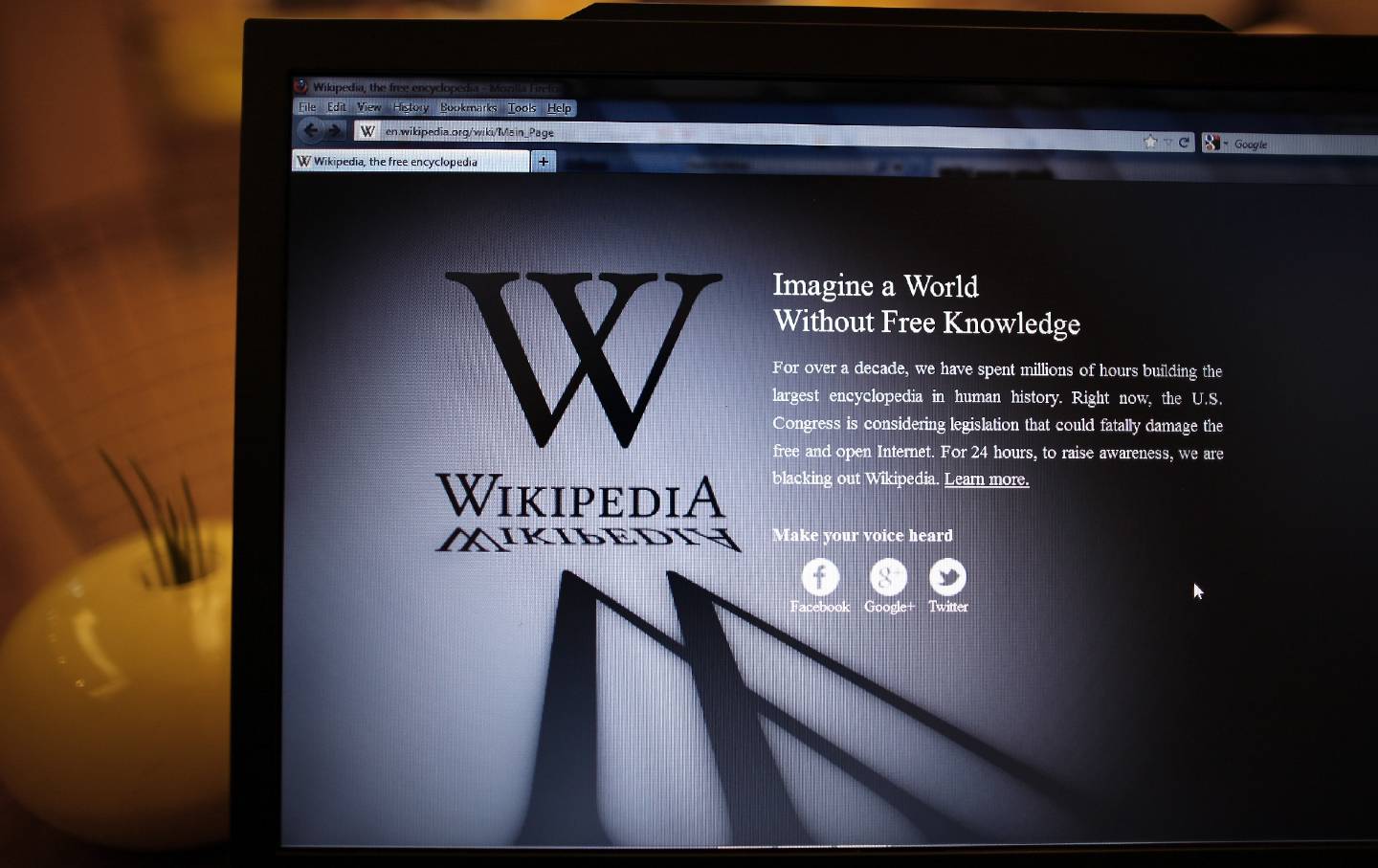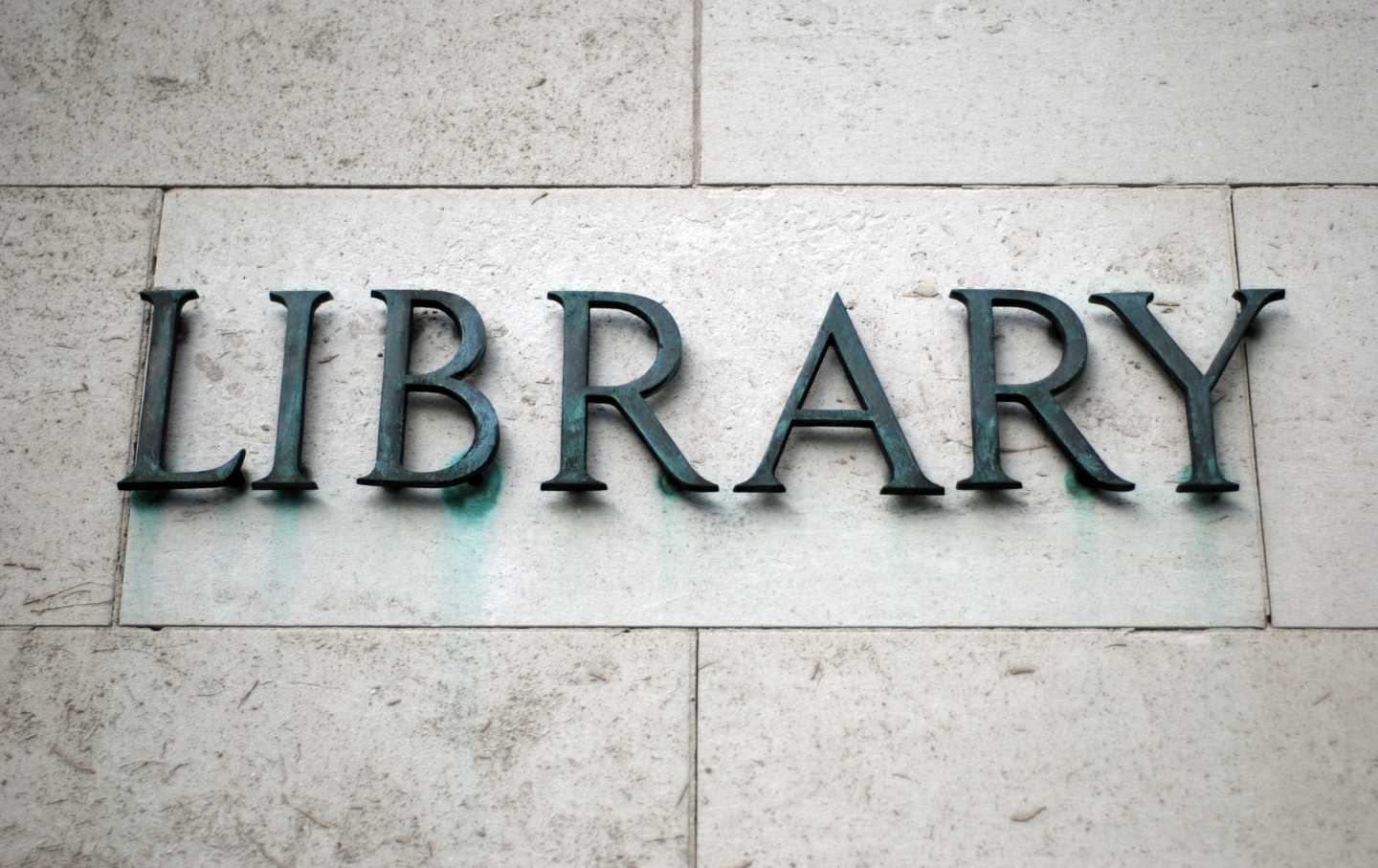9 Ways You Can Save the Internet Right Now
Because the danger to cultural preservation has never been greater.

Much of the Internet has vanished over the 30 years since it began—once-thriving GeoCities pages, Flash games, MySpaces, Vines, blogs, bulletin boards and so much more, all gone for good. A lot was lost through ordinary human bumbling, as companies shuttered, technology broke down, and engineering teams disbanded, scattering institutional knowledge. We’ve also seen the deliberate destruction of online publications and their archives, from Peter Thiel’s successful attack on Gawker in 2016 to Paramount Global’s bewildering decision to shutter the MTV News Archive last year.
In recent weeks the Trump administration has erased tens of thousands of government Web pages, including memorials to military heroes, health information, Census Bureau datasets, and climate change resources. The ferocity and scale of this deletion spree—in tandem with devastating funding cuts to venerable federal institutions and programs including the National Institutes of Health, Voice of America, Radio Free Europe, and USAID—suggest something almost like hatred for the moral and intellectual achievements of better times (and better leaders) in the United States.
The partial and haphazard restoration of deleted government sites in response to court orders and/or public outcry only underscores their fragility, as the White House continues to accelerate its attacks on academic research, climate science, libraries, universities, and public education.
The danger to cultural preservation has never been greater.
The excitement of discovery that exploded over the buzzing, bleeping 56K modems of the 1990s gave the Internet its first character. Suddenly we were all part of an egalitarian, people-powered global network filled with literature chats, text-based games, and Hampsterdance. Where TV and radio had broadcast media for passive consumption, this wild new toy gave people the chance not only to talk back, but to make direct contact with other players, viewers and readers, and form our own private networks outside of corporate control.
But bit by bit the Man took the Internet back, clogging it with commercial algorithms and data mining schemes, fracturing, seizing, and manipulating all the connections they could lay their hands on. Corporate power gathered by the likes of Google, Facebook, Twitter, and Amazon grew to impose far more control over private speech and communications than had ever existed before the 21st century.
These are scary times for anyone who values life in a free and pluralistic society, but we aren’t powerless. The good news is that many of the anchors and much of the spirit of the old people-powered Web are all still around; a renewal of the original forces that animated the Internet can return our kidnapped culture to its senses. Everyone can take part and harness that energy. It will work, and it’s fun as hell.
The Wikimedia Foundation, the Internet Archive’s Wayback Machine, the Data Rescue Project, Common Crawl, and other initiatives backed by colleges, universities, museums, libraries, and governments have spent long years archiving the Internet and giving private individuals all the tools we need and more to help create and safeguard our digital culture.
Here’s how: by saving everything you personally think ought to be saved. A 5-terabyte external hard drive costs less than $150 these days. Get one, and start filling it. Get a second one for a backup. Print out the things you think are most important—and keep copies in different places. This sounds absurd! It isn’t! Save all the records you can, because we’re going to need them when we get to the other side.
Last month in The New Yorker, Julian Lucas reported on r/DataHoarder, a subreddit with more than 845,000 people talking about how to create and maintain digital archives of anything and everything you can think of, datasets, academic papers, medical records, TV commercials, repair guides, films, rock shows—and government records. When the Data Rescue Center’s Sebastian Majstorovic started archiving threatened US Census records in February, the site went down before he’d managed to download a few hundred gigabytes. But “nerds who care” had grabbed the rest of the archives, and the Data Rescue Center was able to fill in the complete backup.
“Web archiving is a team sport,” Mark Graham told me recently. He is the director of the Wayback Machine, a collection of more than 928 billion Web pages begun by the Internet Archive’s founder, Brewster Kahle, in 1995. Graham recently told NPR that the Internet Archive has backed up some 73,000 government websites that were purged since Donald Trump took office in January, including the only copy then available of the interactive timeline detailing the events of January 6 that had been published by the J6 Committee:
You may see something on the Web and it is there at that moment and it may not be there in five minutes. But if you choose to go to the Wayback Machine and click where it says Save Page Now, and enter a URL, you will kick off a process where we will attempt to archive that webpage.
We’re part of a community of Web archivists with 1,300 partners curating archives using our tools. There’s also our patrons, and the thousands of individuals who use our service. Together, we add more than one billion archived URLs a day to the Wayback Machine.
The cost of losing our cultural memory cannot be overstated. We’re living Orwell’s warning from 1984, right now: “Who controls the past controls the future. Who controls the present controls the past.”
Brewster Kahle put this danger succinctly to me in a recent phone interview:
We’re living in the perpetual present. Without a past, we don’t have a sense of direction of our own lives, of our society. We’re able to be conned.
Here are nine ways you can help preserve democratic values and freedom of information in this time of attack on our culture. Pick one now, and get archiving!
1. Hey. You. Get off of that cloud. Storing files on the cloud means handing complete control of your records to the owners of cloud servers—owners who have the power to delete. Buy and secure your own storage devices.
2. Use Gmail? Download it with Google Takeout. You’ll be surprised how much information you’ve recorded and shared over email. Your Gmail archives can help confirm dates and URLs of original news events, articles, and videos. You can use your email archive, too, to piece together the facts of your own life—each of us has been, in effect, an unwitting Pepys.
3. Yes, that includes your phones. Phone records are kept in the cloud, as well. Back up anything of value—photo galleries, music, documents, texts—onto private storage. Download photos and texts from your old phones, too.
Popular
“swipe left below to view more authors”Swipe →4. Gather and keep family records. Mary Austin, cofounder of the San Francisco Center for the Book, recently shared that her mom is slowly losing her memory. But her grandfather’s records have proved a remarkable tonic… and could provide a valuable source of information for historians and researchers.
“My grandfather was an incredible chronicler of his family,” she told me. Mostly photographs, but we also have 100 hours of video, of film. I have a film of my mom, of her first Easter. She was born in 1937, so this would have been Easter 1940. I’ve got a film of her toddling around.… She spends her days going through these books, pictures, and diaries my grandfather kept. She comes back to life.”
5. On Reddit? Join r/DataHoarder, and fall into a sea of posts on how to rescue and store information. I guarantee you will learn something incredible every time you visit. Like just now I went over there and learned about Immich, a app I’d never heard of, for self-hosting decades’ worth of your photos.
6. Help power the Wayback Machine. “I always say, ‘If you see something, save something,’” Mark Graham says. “The barrier to entry is low. It’s accessible to anyone with a Web browser and a desire to help preserve our cultural heritage.”
To save a page to the Wayback Machine archive, copy its URL into the Save Page Now box on the right-hand side of the page at the Wayback Machine. There’s even a Wayback Machine browser extension that allows you to auto-save pages to the archive as you trawl the web.
You can even use the Wayback Machine to rebuild missing Webpages. I haven’t tried this, but there’s a cottage industry of companies that help recreate lost sites, based on Wayback Machine archives, for a small fee.
7. Your own research. Everything interesting that you research privately, that you notice and keep careful track of, could be useful for the future. You might even invent your own branch of scientific inquiry.
In 1736 Robert Marsham, a landowner and naturalist then in his late 20s, began compiling his “Indications of Spring,” a record of his own observations of 27 natural events around his home in Norfolk—the first snowdrops, the first swallows seen, the first butterflies, the first cuckoo call of each spring, etc.—founding the modern science of phenology, the study of seasonal changes in nature. Masham’s work shed light on the effects of climate change centuries later, but it began with just one guy walking around his estate and making notes of his own surroundings. His family continued to maintain these records for generations, creating an unbroken record of 222 years of observations.
In recent years amateur historians have discovered a long-lost story by Bram Stoker and a lost stretch of the Berlin Wall. Working alone for years, amateur historian Catherine Corless pieced together and documented records of the deaths of nearly 800 children in an Irish convent maternity home between 1925 and 1961, which led to official investigations, accountability and institutional change.
8. Learn to edit Wikipedia. Crowdsourced knowledge is the richest, most valuable gift of the Internet. At this tutorial you can learn how to help contribute to Wikipedia, which is a fun and fascinating hobby, and a worthwhile way to contribute to the future of digital culture.
Sites like Wikipedia, Reddit, Metafilter and the Internet Archive represent not the end but the beginning of what people can save together. If you have verifiable knowledge of places, books, media, histories that could be of use to others, get a Wikipedia account and start helping to make sure that the public knows as much about it as you do.
9. Make contact with others on socials, at your library and everywhere you can IRL, and share your work, insights, and observations. And especially, praise and share and encourage others to make their own archives.
People of conscience are the only thing that has ever stood between civilization and barbarism. Keeping receipts, helping others to do so—and being in a position to share them—is a crucial part of the work we need to do together to preserve a democratic society.
The most important part of preserving the open Web—the real Web, the people’s Web—might well lie in literally saving it.
Hold the powerful to account by supporting The Nation
The chaos and cruelty of the Trump administration reaches new lows each week.
Trump’s catastrophic “Liberation Day” has wreaked havoc on the world economy and set up yet another constitutional crisis at home. Plainclothes officers continue to abduct university students off the streets. So-called “enemy aliens” are flown abroad to a mega prison against the orders of the courts. And Signalgate promises to be the first of many incompetence scandals that expose the brutal violence at the core of the American empire.
At a time when elite universities, powerful law firms, and influential media outlets are capitulating to Trump’s intimidation, The Nation is more determined than ever before to hold the powerful to account.
In just the last month, we’ve published reporting on how Trump outsources his mass deportation agenda to other countries, exposed the administration’s appeal to obscure laws to carry out its repressive agenda, and amplified the voices of brave student activists targeted by universities.
We also continue to tell the stories of those who fight back against Trump and Musk, whether on the streets in growing protest movements, in town halls across the country, or in critical state elections—like Wisconsin’s recent state Supreme Court race—that provide a model for resisting Trumpism and prove that Musk can’t buy our democracy.
This is the journalism that matters in 2025. But we can’t do this without you. As a reader-supported publication, we rely on the support of generous donors. Please, help make our essential independent journalism possible with a donation today.
In solidarity,
The Editors
The Nation








